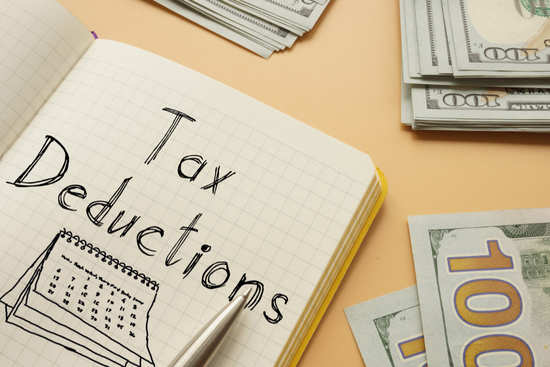
Owning your own business has significant tax advantages. Ask anyone who has gone from being an employee to being their own boss and they’ll tell you the deductions alone make it all worthwhile. Still, many business owners are missing out on a fair number of deductions. This may be for a combination of reasons. Maybe they don’t use a CPA, they don’t completely understand how to track expenses, or something else. The IRS is happy to let you take as many legitimate business deductions as you qualify for. But you need to be aware so you keep track of those expenses.
1. Research
There are two ways that tax write-offs apply when it comes to business research. Your CPA can amortize the costs, or you could get a research tax credit. Because research is an activity that boosts the overall worth of the business, research and experimental costs are typically capital expenditures. Capital costs must be depreciated over a specific time frame.
Costs for research and experiments that aim to give information needed to operate or expand your business, or that would remove doubt regarding the creation or improvement of a product are fair game as far as taxes go.
You may qualify for a tax credit of up to 20% of the qualified costs incurred for these activities if your small business conducts research. Additionally, you might be eligible to use a portion of this research credit as a payroll tax credit against your company's share of Social Security Tax if your small business qualifies.
Typically, experiments utilizing science to enhance a product or procedure are considered research activities for the purposes of this tax credit.
2. Startup Costs
Startup costs of $5,000 or less can be deducted. Specifically, if your startup costs are $50,000 or less, you can deduct up to $5,000. If startup costs are over $50,000 but less than $55,00, you are legally allowed to deduct $5,000, less the difference between your total startup costs and $50,000. If you had money to help with startup costs, such as from an angel investor or from venture capital, the equation is more complicated. In this case, you should keep track of strap expenses, but let your CPA handle how much deduction you’re entitled to.
3. Bad Debt
Considering the current economy, it’s good to know that bad debt can be used as a business deduction. Many of the most famous companies in the world have a lot of bad debt, which serves to give them a tax break. To establish bad debt, there must be a bona fide relationship between the creditor and the debtor, such as a purchase order, contract or similar. The business owner needs to be able to show that there was an expectation of payment. For this reason, be sure to keep all records of transactions, not just the unpaid invoice.
4. Bank Fees
Does your business use a credit card processor or an online payment platform like Stripe or PayPal? If so, remember that the fees charged by agents like this are considered bank fees and are legitimate business deductions. Every time you transfer money from PayPal directly into your business bank account, PayPal charges a percentage; that’s a business deduction. That 35 cent transaction fee on credit card purchases from your customers is also a business deduction. These are small amounts, but they can add up over the course of a year. Your CPA may have ideas for keeping track of the tiny expenses to ensure you take credit for each and every one.
5. Business Memberships and Dues
Do you have a club membership that you use for yourself and your clients? Do you take your clients to lunch at your golf club? Do you give your employees a club membership as a perk? Keep your receipts because these all count as business tax deductions with the caveat that they are business-related.
6. Petty Cash Expenses
One of the most overlooked business tax deductions is expenses from the petty cash box. This box gets overlooked in so many offices. A good bookkeeper will replace money out with receipts in, so that at the end of the month the petty cash box balances out and all the proof is available for any legitimate business expenses. But if you’re wearing all the hats in your small business, this is an easy one to overlook.
7. Trade Subscriptions
Do you fill your front lobby with trade magazines? Do you get subscriptions to trade magazines at home so you can keep abreast of new developments in your field? Trade magazine subscriptions are business tax deductible, as long as they are related to your area of business. Online paid newsletters are also business tax deductible, as long as they qualify as business-related.
8. Home Office Expenses
If, like many people, you’ve transitioned to a work-from-home set up, you should know that many home office expenses are deductible, such as internet, office equipment, office furniture and more. There are very specific rules about what percentage of home office expenses you can deduct, and different ways to calculate the deduction, so be sure to consult with your CPA about your situation.
The key ingredient for making sure that you’re not missing out on any business deductions is to work closely with your CPA. Your CPA can review all your expenses and point out ones that are tax deductible so that you are both on the same page. It’s easy to simply sign your business tax return at the end of the year, but understanding where your business tax deductions could increase will yield more favorable tax positions.
